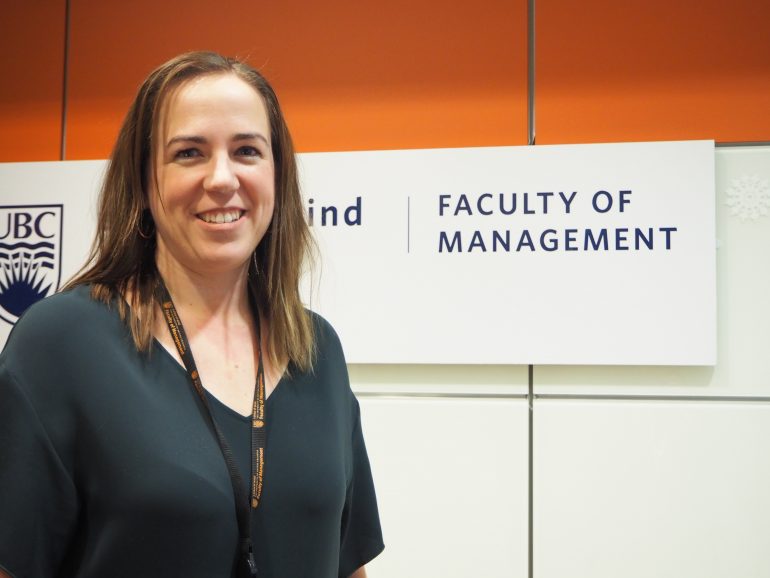Getting a good night’s sleep is sound advice for most people, but a new UBC study says sleep is vital for those who are recovering from a stroke.
Jennifer Davis is an assistant professor in the Faculty of Management at UBC’s Okanagan campus. Her goal is to improve the health of Canadians and her research area includes exploring the value of patient-reported measures in the fields of healthy aging—including cognition, mobility and various surgical outcomes.
Davis, along with a team of UBC researchers, recently published a study in the Journal of Stroke and Cerebrovascular Diseases examining the relationship between depression and sleep among stroke survivors.

Jennifer Davis, an assistant professor in the Faculty of Management, explores the value of patient-reported measures in the fields of healthy aging.
“Sleep disturbances are common in older adults who have had a stroke and there is mounting evidence that stroke and sleep are interconnected,” she says. “Because a stroke can damage the central nervous system, it often leads to changes in brain activity, brain function and sleep.”
Davis says one in six older adults, worldwide, will suffer a stroke and data suggests that 20 to 40 per cent of those stroke survivors have a sleep disorder, while a further 50 to 70 per cent will have a sleep-related breathing disorder.
Poor sleep, she says, may significantly interfere with post-stroke recovery and may also lead to depression if a stroke survivor suffers from daytime confusion and inability to cope due to being overtired.
“There is an emerging area of research examining the benefit of sleep in regulating emotional brain reactivity,” she says. “In this study, we found that depression was significantly associated with sleep quality, how long it takes a person to fall asleep, how well they sleep and their daytime dysfunction due to a lack of sleep.”
Davis notes it is common for stroke survivors to experience depression—while they recover, they are also dealing with lower levels of health-related quality of life, physical function and general cognition. Add on a poor night’s sleep and it’s easy to assume that stroke-associated effects on sleep quality can also impact a person’s general, physical and mental wellbeing.
“The specific associations that depression, health-related quality of life, physical function, and cognition have with sleep quality among stroke survivors remains unknown,” Davis says. “Fortunately, sleep quality is modifiable—it’s something we can recognize and work to improve. Thus, sleep should be considered in the management of those who have suffered a stroke to optimize post-stroke rehabilitation outcomes.”
About UBC's Okanagan campus
UBC’s Okanagan campus is an innovative hub for research and learning in the heart of British Columbia’s stunning Okanagan Valley. Ranked among the top 20 public universities in the world, UBC is home to bold thinking and discoveries that make a difference. Established in 2005, the Okanagan campus combines a globally recognized UBC education with a tight-knit and entrepreneurial community that welcomes students and faculty from around the world.
To find out more, visit: ok.ubc.ca
 Report into crash released
Report into crash released Fatal stabbing near pier
Fatal stabbing near pier Harbour Air going electric
Harbour Air going electric CRA will get the money: PM
CRA will get the money: PM PM tight-lipped on TikTok
PM tight-lipped on TikTok Minister defends right to bail
Minister defends right to bail Ukraine uses new missiles
Ukraine uses new missiles Biden signs war aid measure
Biden signs war aid measure New US rules for airlines
New US rules for airlines  BoC officials split on rate cut
BoC officials split on rate cut Big loss for Boeing
Big loss for Boeing  Metro sales edged higher
Metro sales edged higher Vees dominating Vipers
Vees dominating Vipers Warriors snakebitten in loss
Warriors snakebitten in loss Iginla off to Europe
Iginla off to Europe Perry teams with Lu Kala
Perry teams with Lu Kala Megan denies harassment
Megan denies harassment Swift ‘one of the family’
Swift ‘one of the family’



